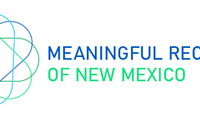Recovery Programs
Finding a recovery program that aligns with your beliefs can greatly affect your recovery success. Christian rehab centers use a faith-oriented perspective for those who wish to overcome their addiction and encourage spiritual reflection and scripture reading for guidance. Twelve-step programs offer a structured, principle-based approach to treating addiction, while non-12 step programs use a wider array of services that take a more scientific approach to help each individual. The holistic approach to treating addiction focuses on the person as a whole—body, mind and soul—and go beyond the chemical component of recovery. Meanwhile, family treatment programs not only help the person struggling with addiction, but the loved ones of those who are afflicted as well. Read more about the different types of recovery programs to find the one that’s best for you. Read More
Faith-based Treatment
Christian drug rehab centers provide a faith-based foundation for those struggling with addiction. Christian treatment centers encourage spiritual reflection and often use scripture as guidance through drug addiction along with traditional detox, individual counseling, and group therapy sessions. In a faith-based treatment program, God's love and acceptance are emphasized so the recovering addict can gather strength and find inspiration.
12 Step Related Program
Find a drug and alcohol treatment center that is influenced by the guiding principles of 12-step programs. These 12-step groups might be more flexible in their tenets, catering their rehab programs for the individual's needs.
Non-12 Step Program
Many rehab centers follow 12 predetermined steps to recovery. These guiding principles set the course of action recommended to the addict seeking recovery. But every person is different and so are their needs. Non-12-step rehab offers a multitude of services that can be mixed and matched to meet the individual's specific situation. These 12-step alternatives can be more therapeutic in nature, striving to treat the patient as a whole rather than focusing exclusively on the addiction itself. Typically, after a one-on-one session, a counselor evaluates the individual and drafts a flexible plan filled with a variety of therapy options which can be revised as needed or maneuvered in order to overlap with the individual's current stage of recovery.
Holistic Treatment
Looking for an alternative to traditional rehab therapy? Holistic drug rehab strives to take into account and treat the whole person's mind, body, soul; not just the chemical dependence of addiction. Alternative drug rehab delves into possible comorbid conditions and looks at assessing an individual's overall health. Holistic addiction treatment often includes detox and psychotherapy; however, alternative treatments for addiction such include acupuncture, neurofeedback, eye movement desensitizing and reprocessing (EMDR) therapy, Reiki, massage therapy, equine-assisted therapy, and more might be included in a client's personal addiction recovery plan as well.
Family Treatment
Addiction does not just affect the person who is struggling with an alcohol or drug problem, it impacts the entire family. Whole family treatment programs help loved ones of addicts understand and support the addiction recovery process. Therapy, both group and individual, is usually recommended. Coping mechanisms and behaviors are addressed and worked though, so the whole family can be part of breaking the addiction cycle as well playing a part in maintaining sobriety.
Under 30 Days Treatment
If you need to get sober but cannot take a significant amount of time away from home or work, you may want to consider a short-term rehab program. This type of treatment typically lasts from 14 to 30 days, during which you can safely detox under the supervision of medical professionals and participate in individual and group therapy sessions. While longer programs are optimal in maintaining long-term recovery, some patients find that treatment for under 30 days is their only available option.
30-60 Days Treatment
Whether it’s your first time in rehab or you’re back again, a 30 to 60 days program is a standard commitment to recovery. This amount of time allows the person to undergo medical detoxification, individual counseling and group therapy. Family members may also be encouraged to participate in support groups or therapy sessions. Throughout the extent of treatment, you can pick up new ways to cope with stressful situations and better deal with cravings when they hit.
60-90 Days Treatment
For someone who has had long-term substance abuse, chronic relapse or specific medical needs, a long-term rehab program is shown to increase the chances of a successful recovery. While shorter programs focus heavily on the physical aspects of addiction, a 2 to 3 month program takes on its psychological aspects on a deeper level. Apart from detox, counseling and therapy sessions, this type of treatment places importance on establishing self-confidence, coping and life skills, and support systems that will last long after the person's time in rehab.
Pet-Friendly
Pets are a proven benefit to physical, mental and emotional health. That is why some drug rehabs now allow you to bring your dog to treatment. Getting sober is already a stressful time in itself, so having your furry friend by your side can make all the difference. These addiction treatment centers below allow you to integrate your dog or pet into the recovery process.
Interventionists
Intervention specialists help family and friends facilitate the process of getting the addict into addiction treatment. These drug interventionists drawing heavily on their mental health training and understanding of addiction. They provide support to the family by organizing the rehab process and guiding the intervention.

















